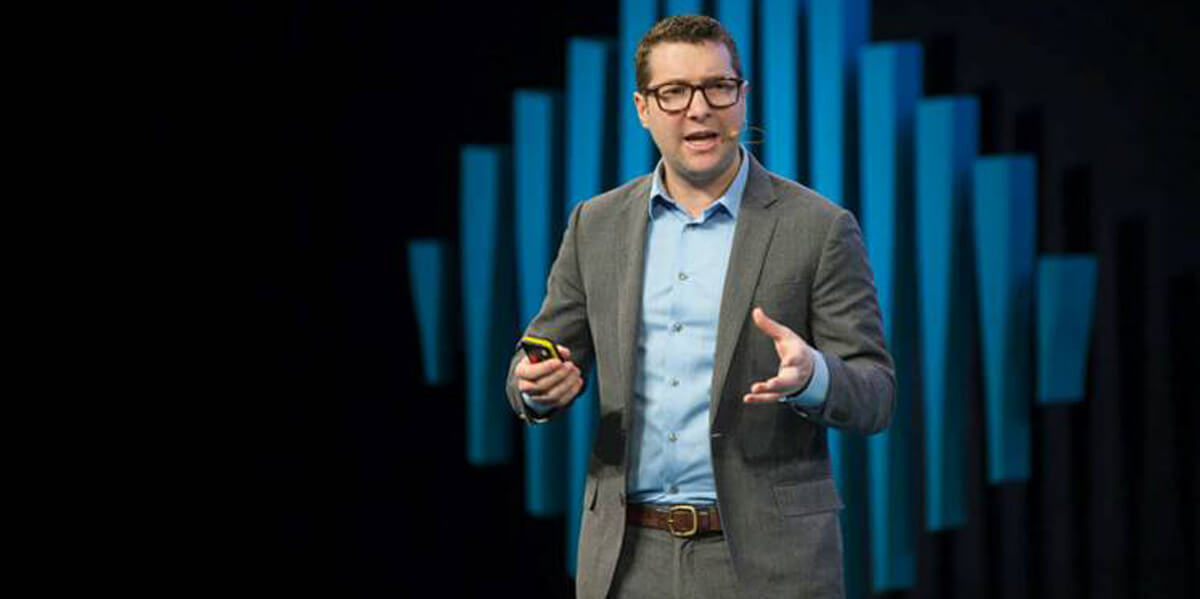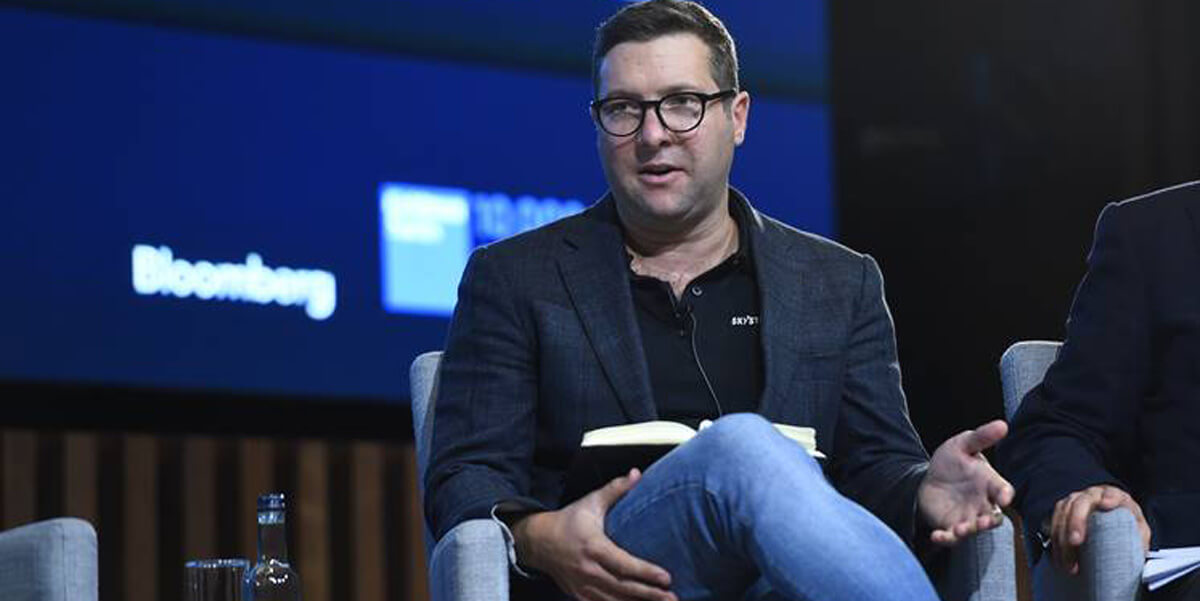 The co-founder of the world’s leading digital assets platform says he got his entrepreneurial start at Colorado Academy.
The co-founder of the world’s leading digital assets platform says he got his entrepreneurial start at Colorado Academy.
Blockchain.com Co-founder and Vice Chairman Nicolas Cary ’03 remembers spending hours with classmates in the school computer lab writing code and being “nerdy.” He and the CA website-building team won web-design contests, and some of them started earning income for their work.
“In the early 2000s, everyone wanted a website, so we were winning in a different type of sport,” says Cary, who has also founded two non-profit organizations that help underserved youth become entrepreneurs.
And the serial entrepreneur is still winning—including the 2015 European Digital Leader Award, as well as media appearances with CNN, Forbes, The New York Times, The Wall Street Journal, NPR, TedX, and more.
“I’ve always liked building and creating companies, and I enjoy continual learning and the opportunity to be influential,” he says.
‘I knew it would change everything’
Like a lot of people, when Cary first heard about Bitcoin and other cryptocurrencies, he was suspicious. But then he learned about the blockchain concept.
In Cary’s description, blockchain is like a huge, online spreadsheet that keeps track of all digital transactions. Unlike most databases, the blockchain structure involves an irreversible timeline of data that, once stored, cannot be changed. This, plus its decentralized management, makes it a secure source of record-keeping—something the internet has long needed, Cary says.
In 2013, Cary was introduced to Ben Reeves, an entrepreneur in the United Kingdom, about his nascent crypto business venture. At first, they were just exploring possibilities, but then “things got serious really quickly.”
“When I learned what was possible, I dropped everything I was doing, moved to York, and started working on it with him,” says Cary, who now lives in England and splits time across half a dozen offices. “I knew it would change everything.”
With the value of Bitcoin skyrocketing, Cary and his colleagues started Blockchain.com and built the first hosted digital wallet for Bitcoin. Within a few months, they had more than a million users, and their first-round venture funding was the largest in U.K. history at the time, Cary says. Soon, they started working with multiple forms of cryptocurrency in addition to Bitcoin.
So far, more than 80 million people from over 200 different countries have signed up to use the Blockchain.com platform and have conducted more than a trillion dollars in transactions. The company now has 600 employees and has worked with high-profile investors from Google Ventures to British billionaire Richard Branson. It just raised a round of financing valued at $14 billion and plans to expand its operations globally.
“I can’t believe this thing is as big as it is now,” Cary says.
‘We’re entering a very different era’
While technology has changed people’s lives in terms of communication and media, Cary says, it hasn’t significantly changed our relationship with money—yet.
“We inherited a world with powerful financial institutions—including banks, exchanges, and intermediaries—but we’ve been running a concerning financial experiment globally,” he says, citing the steady increase in currency supply since the 2008 recession.
While fiscal packages were passed to prop up the economy during the pandemic, they have also caused inflation in commodities, he says. Prices are going up, but incomes are not keeping pace. And a reliance on physical cash means that billions of people are only able to transact with the currency of their own government.
“From the dinner table to the boardroom, everyone is starting to learn how painful inflation is,” says Cary, who thinks an alternative, internet-based financial system could be the solution.
“If we can give everyone at least equal access to basic transactional capabilities, that makes the pie bigger for everybody,” he says. “The global economy needs a fluid payment network, so that everyone, regardless of the circumstances of their birth, can send and receive money as easily as sending a text message. It looks to me that the internet is going to be the world’s growth engine going forward.”
As evidence, he uses the timely example of the war in Ukraine. People want to donate money to support Ukrainian refugees, but because of the Russian occupation, it’s difficult to send money there. Despite that, the cryptocurrency community has raised over $100 million for the cause—more than four times what the United Nations has pledged.
“We’re entering a very different era, in my opinion,” Cary says, “an era where internet companies can become publicly owned utilities enabling global commerce.”
‘The first time I was really challenged academically’
Through Blockchain.com and other companies he’s created and led, Cary has had financial success. But the child of a single mom didn’t always have complete financial security.
“We didn’t have the means to afford CA,” he says, “but thanks to scholarship programs and financial aid there, I was able to attend the school.”
He’s grateful for the experiences CA gave him.
“I benefited from the smaller classrooms, and without exaggeration, I think CA was the first time I was really challenged academically,” says Cary, who attended CA from Eighth to Twelfth Grade. “As students, we were given a good deal of room to experiment and self-organize, to test and try a variety of projects.”
His organizing at CA included forming a ballistics club and a cyber athletics league for video gamers. And he says his commitment to service has its roots at CA.
“The service element at CA really imprinted on me,” he says. “Entrepreneurship is a huge way to serve people by giving them agency over their lives.”
Early in his career, Cary worked as a schoolteacher for outcast youth in rural India. Today, he leads the nonprofit organizations, Youth Business USA and SkysTheLimit.org, which provide business support, resources, and mentors to more than 45,000 youth.
He credits the CA community for motivating him to achieve as a young person.
“You run as fast as the pack around you,” he says, “and the community around me at CA inspired my thirst for knowledge.”

